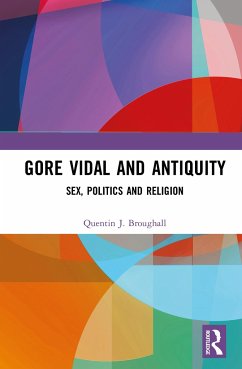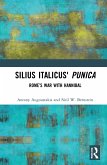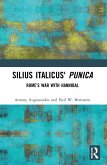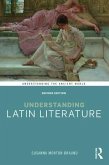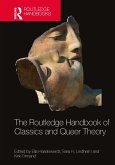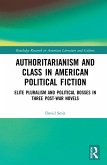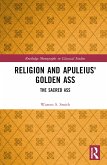This book examines Gore Vidal's lifelong engagement with the ancient world. Incorporating material from his novels, essays, screenplays and plays, it argues that his interaction with antiquity was central to the way in which he viewed himself, his writing, and his world. Divided between the three primary subjects of his writing - sex, politics, and religion - this book traces the lengthy dialogue between Vidal and antiquity over the course of his sixty-year career.
Broughall analyses Vidal's portrayals of the ancient past in novels such as Julian (1964), Creation (1981) and Live from Golgotha (1992). He also shows how classical literature inspired Vidal's other fiction, such as The City and the Pillar (1948), Myra Breckinridge (1968), and his Narratives of Empire (1967-2000) novels. Beyond his fiction, Broughall examines the ways in which antiquity influenced Vidal's careers as a playwright, an essayist and a satirist, and evaluates the influence of classical authors and their works upon him.
Of interest to students and scholars in classical studies, reception studies, American politics and literature, and the work of Gore Vidal, this volume presents an original perspective on one of the most provocative writers and intellectuals in post-war American letters. It offers new insights into Vidal's attitudes, influences, and beliefs, and throws fresh light upon his patrician self-fashioning and his mercurial output.
Broughall analyses Vidal's portrayals of the ancient past in novels such as Julian (1964), Creation (1981) and Live from Golgotha (1992). He also shows how classical literature inspired Vidal's other fiction, such as The City and the Pillar (1948), Myra Breckinridge (1968), and his Narratives of Empire (1967-2000) novels. Beyond his fiction, Broughall examines the ways in which antiquity influenced Vidal's careers as a playwright, an essayist and a satirist, and evaluates the influence of classical authors and their works upon him.
Of interest to students and scholars in classical studies, reception studies, American politics and literature, and the work of Gore Vidal, this volume presents an original perspective on one of the most provocative writers and intellectuals in post-war American letters. It offers new insights into Vidal's attitudes, influences, and beliefs, and throws fresh light upon his patrician self-fashioning and his mercurial output.
"This is a splendid study of Gore Vidal and antiquity, one that throws a great deal of light on his unfolding vision. Broughall writes with unusual clarity and grace, drawing attention to Vidal's ongoing engagement with Roman and Greek history and literature. Anyone interested in Vidal or modern American writing should find this book useful and stimulating. Highly recommended." - Jay Parini, Axinn Professor of English at Middlebury College, author of Empire of Self: A Life of Gore Vidal.
"I believe Gore Vidal and Antiquity is a book that needed to be written, if anything as an invitation to classicists (and by that I mean anyone with a special interest in Mediterranean antiquity) to join in critically assessing a behemoth of classical reception in modern American culture." - Bryn Mawr Classical Review
"I believe Gore Vidal and Antiquity is a book that needed to be written, if anything as an invitation to classicists (and by that I mean anyone with a special interest in Mediterranean antiquity) to join in critically assessing a behemoth of classical reception in modern American culture." - Bryn Mawr Classical Review

